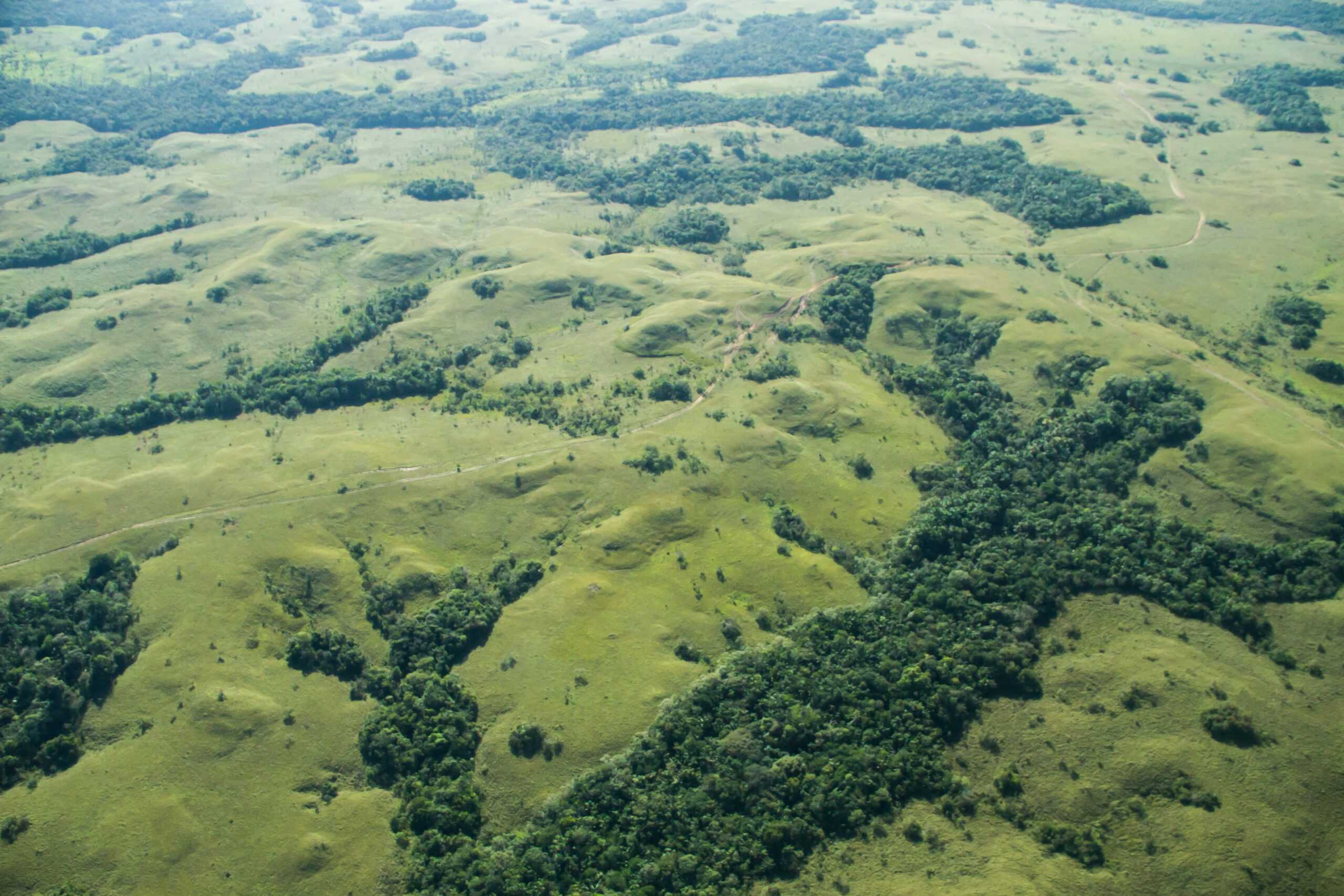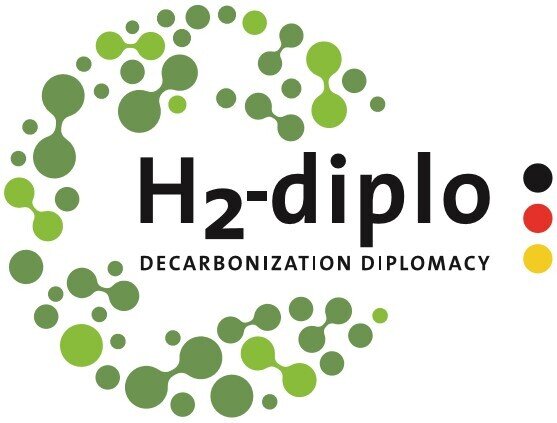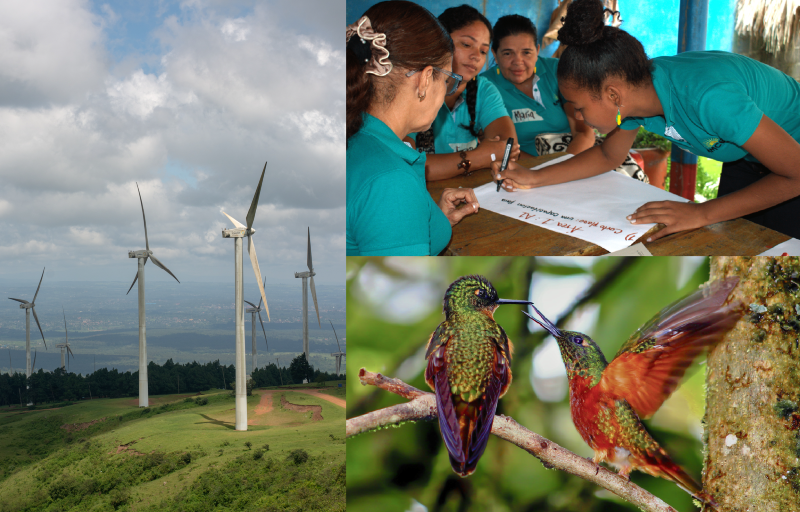In partner countries, the agriculture, food and tourism sectors are associated
with environmental problems such as land degradation and deforestation. These sectors are also relevant for greenhouse gas emissions. The project is tackling these issues with a range of strategies and measures for sustainable production and consumption, with one approach focusing on support for national governments in the development of mitigation strategies in the agro-food sector. Companies are also being encouraged to support sustainable business models in industries such as palm oil production, hospitality and tourism. The inclusion of key opinion leaders plus support from public information campaigns has also helped to raise awareness in the general population about sustainable approaches to production and consumption.
Countries: Colombia, Indonesia, Paraguay, Philippines, Thailand
IKI funding: 5,859,999.00 €
Duration: 03/2017 till 12/2023
Status: open
Implementing organisation: World Wide Fund for Nature (WWF) – Germany
Political Partner: Climate Change Commission (CCC) – Philippines
Ministry of Environment and Sustainable Development (MADES) – Paraguay
Ministry of Environment and Sustainable Development (MADS) – Colombia
Ministry of Natural Resources and Environment (MoNRE) – Thailand
State Ministry of National Development Planning (BAPPENAS) – Indonesia
Implementing Partner: Department of Environment and Natural Resources (DENR) –
Philippines
Department of Tourism (DOT) – Philippines
Forestry Industry Organisation (FIO) – Thailand
Foundation for Consumers (FFC)
Ministry of Agriculture and Cooperatives – Thailand
Ministry of Environment and Forestry (KLHK) – Indonesia
Office of Natural Resources and Environmental Policy and Planning – ONEP – Thailand
Office of the Consumer Protection Board (OCPB) – Thailand
World Wide Fund for Nature (WWF) – Colombia
World Wide Fund for Nature (WWF) – Indonesia
World Wide Fund for Nature (WWF) – Paraguay
World Wide Fund for Nature (WWF) – Philippines
World Wide Fund for Nature (WWF) – Thailand
International:
In collaboration with a communications agency, a new branding concept and overall communications strategy for the whole SCP project was developed, titled “Future Food Together”.The SCP website was revised and updated in line with the new brand identity and communication tools. –An action platform on Sustainable Diets and Consumption was formed, to which WWF invited a large number of organisations working in this field to join and contribute, jointly publish articles and coordinate political interventions: Global Action Platform Sustainable Consumption Diets Eat4Change dinner hosted as COP 26 side-event to bring together national level stakeholders, non- state actors, civil society groups, youth, indigenous groups, media and other key partners to celebrate the power of food to transform people and planet.
Colombia:
WWF Columbia co-organized the independent Food Systems Summit Dialogue “Science, Technology, and Innovation to transform Food Systems in Latin America” convened by the Instituto Interamericano de Cooperación para la Agricultura (IICA), IUCN, CIAT, Coalición para la Alimentación and FOLU.
A first consumer survey helped to get a more comprehensive view of how Colombians relate to food and environmental challenges.
An educational booklet was launched in collaboration with a national newspaper about food and how to act to protect the environment.
Between September and October, there were 45 media mentions related to three press releases issued by WWF COL on food waste, as well as interviews on information and the launch of the Sustainable Gastronomy Course.
Paraguay:
WWF Paraguay, together with local political partners SEDECO and MADES, conducted a series of workshops entitled “Communicating Sustainability in Products” in collaboration with the UNEP-supported Advance SCP project. During these workshops, more than 20 company representatives were trained on how to effectively communicate relevant information to consumers about sustainability aspects of their product.
As part of the Planeta-T campaign, in collaboration with the Paraguayan Chamber of Supermarkets (CAPASU), the team distributed reusable bags to customers of ten supermarkets in Asunción and Gran Asunción.
The dissemination activities of the campaign included exchanges of experiences among producers in order to make responsible production and all that it entails visible in the country (for futher information, you may visit the following video, in Spanish only: www.youtube.com/…)
Thailand:
July 2017: Official project kickoff conference with more than 50 key stakeholders including government officials, academics, NGOs, international organisations and others interested parties.
Conducting thorough research and review on maize supply chains in Thailand and planning activities based on findings.
Joint workshop on “Indicators for sustainable maize production and the animal-feed industry” between WWF and the National Science and Technology Department Agency as a key stakeholder working on sustainable maize supply chains. Launch of the project website scp.wwf.or.th
Initiating pilot sustainable production and consumption models in selected project sites in Chiangmai and Nan as a solution to deforestation, degradation of ecosystems and smallholder livelihoods.
October 2018: Co-organising a workshop at the Sustainable Brands Forum in Bangkok in cooperation with the One Planet Consumer Information Programme, promoting the “Guidelines for Providing Product Sustainability Information “.
October 2018: Workshop on “Promoting farmers’ markets as a bustling hub of sustainability” under the Sustainable Brands Bangkok forum.
Launch of the FLR349 funding model, setting up a model for restoration and protection of degraded headwater ecosystems and the eradication of social inequality, providing incentives for smallholder farmers to shift from monoculture production of maize to sustainable farming practices.
Capacity building workshops with local organizations, smallholder farmers and key stakeholders in Chiangmai and Nan. More than 700 farmers have been targeted to test, validate and share farming practices that better protect the environment/climate.
Since November 2017, a total of about 990 acres of maize plantation have been converted from monoculture to an agro-forestry system and serve as model sites for sustainable agriculture and sustainable supply chains.
“Eat Better” campaign for public awareness-raising on the need for responsible consumption, including offline and online platforms and engagement tools.
May 2019: In partnership with the NGO Biothai, a workshop on agrochemical testing (pesticides & herbicides) in vegetables and fruit was held with the participation of 50 food activists from Bangkok.
In the meantime, 187 smallholders have been trained on 209 plots with a total of 141 hectares of land and certified according to the Participatory Guarantee System (PGS).
Indonesia:
July 2017: National kickoff workshop, well-attended by representatives from government stakeholders, private sectors/ business associations and representative of communities/ NGOs.
Submission of a proposal for collaboration with Go-Food and Go-Mart (mobile APPs for online delivery) to develop new categories on ‘Green Shopping’ in the APPs.
Since December 2017 campaign activities by community partners have been conducted, e.g. the “Live Greener” campaign by Burgreens Community in Jakarta and the “Local for Local” campaign by the Indonesia Organic Community (KOI) in Jakarta, Bandung and Surabaya.
WWF-Indonesia’s “Beli Yang Baik” campaign on sustainable consumption has undergone a deep analysis of its effectiveness and strategic delivery. The results are refined messages for the campaign.
November 2018: WWF workshop will invite retailers, the Ministry of Trade and industry-related associations to discuss the establishment of a retailer roundtable for increasing the domestic uptake of sustainable products.
November 2018: Asia-Pacific Round Table on sustainable consumption and production, organized by the Indonesian government in Jakarta.
December 2018: The project participated at the UNFCCC COP 24 in Katowice/ Poland with new findings on NDC development.
A media trip to Sintang, West Kalimantan was conducted with participants from four media outlets and two social media influencers. The trip visited a production side of the palm oil industry.
One of the community partners of the project, Indonesia Organic Community, engaged 68 local small producers of organic products through trainings and an awarding event titled ‘Most in Harmony with Nature’. The initiative is promoted on Instagram @lokaluntuklokal @komunitasorganikindonesia
Burgreens community started to reach out to a new target audience, namely office employees of three large companies (Development Bank of Singapore, Pricewaterhouse Coopers and Kerry Industries) in the frame of the ‘Live Greener Goes to Office’ activities. The main purpose is to educate office employees of the benefits of eating healthy food and benefitting the environment at the same time.
The Live Greener campaign created its own Instagram account @livegreener.id to educate the public on sustainability issues, sustainable food consumption and a zero-waste lifestyle.
The project helped to establish a learning center for organic rice farming in Bali.
September 2019: Ceremonial signing of a Memorandum of Understanding between WWF Indonesia and the Governor of West Java Province to work together on SCP issues.
Workshop series with the food retail trade on the creation of sustainable purchasing guidelines as an important step towards establishing a permanent platform for sustainable food retail.
Philippines:
Meetings with key tourism cities are underway and inputs are being sought from local governments regarding the project implementation in Tagaytay City, Cebu City and Quezon City. Commitment of project support with the above mentioned cities has been established.
Communication materials were continuously developed to promote the project’s core principles: local and sustainable sourcing as well as management of resources and waste.
May 2018: An interactive exhibit material in the form of a simulation of a restaurant dining experience and its relation to the environment/ climate was launched at the International Food Exhibition at the World Trade Center Manila.
Part of the project activities is to conduct media trips with key actors, i.e. celebrity chefs, key lifestyle influencers, traditional columnists and social bloggers to build awareness in food and tourism media. A media trip series was conducted entitled “Savour Planet: Cooking with a Purpose” in the three key tourism cities of the project.
As of September 2018, a total of 24 restaurants have partnered with the project.
October 2018: Food waste management, basic food safety and food handling training for Tagaytay City-based restaurants.
November 2018: Food waste intervention action planning workshops for Taal Vista Hotel and Pico De Loro.



